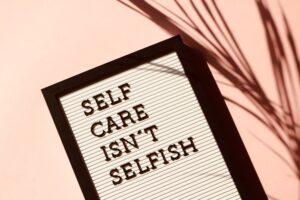Exercise
Exercise is an essential component of a healthy lifestyle, and it has numerous benefits for both the body and the mind. Regular exercise can help improve physical health by increasing cardiovascular endurance, building strength and flexibility, and reducing the risk of chronic diseases such as obesity, diabetes, and heart disease. Additionally, exercise has been shown to improve mental health by reducing stress, improving mood, and enhancing cognitive function.
Types of exercises
- Cardio exercises, such as running, cycling, and swimming
- Strength training exercises, such as weightlifting, bodyweight exercises, and resistance training
- Flexibility exercises, such as stretching and yoga
- Balance and coordination exercises, such as Pilates and tai chi
- High-intensity interval training (HIIT) exercises, which combine short bursts of intense exercise with periods of rest
- Plyometric exercises, which involve explosive movements to improve power and speed
- Functional training exercises, which focus on improving everyday movements and activities
- Mind-body exercises, such as meditation and mindfulness
- Team sports and group fitness classes, such as basketball, soccer, and Zumba
- Outdoor activities, such as hiking, rock climbing, and surfing.

Benefits of exercise
- Improved cardiovascular health: Regular exercise can improve heart health by lowering the risk of heart disease, high blood pressure, and high cholesterol.
- Weight management: Exercise can help maintain a healthy weight by burning calories and building muscle.
- Increased muscle strength: Regular exercise can increase muscle strength, leading to improved physical performance and a reduced risk of injury.
- Improved mental health: Exercise can improve mood and reduce the risk of depression, anxiety, and stress.
- Improved cognitive function: Exercise can improve brain function and memory, leading to better focus, concentration, and decision-making abilities.
- Increased energy levels: Exercise can increase energy levels by increasing the production of endorphins, the body’s natural feel-good chemicals.
- Improved sleep: Regular exercise can improve sleep quality and duration, leading to a more restful night’s sleep.
- Reduced risk of chronic diseases: Exercise can reduce the risk of chronic diseases such as diabetes, cancer, and osteoporosis.
- Improved flexibility: Regular exercise can increase flexibility and range of motion, leading to improved physical performance and reduced risk of injury.
- Stronger immune system: Exercise can boost the immune system, helping to fight off illness and infection.
- Increased bone density: Exercise can increase bone density, reducing the risk of osteoporosis and improving overall bone health.
- Improved balance and coordination: Regular exercise can improve balance and coordination, reducing the risk of falls and injuries.
- Increased self-esteem: Exercise can boost self-esteem and confidence, leading to improved mental and emotional well-being.
- Reduced stress: Exercise can reduce stress levels by releasing endorphins and promoting relaxation.
- Increased social connections: Exercise can provide opportunities for social interaction and connection with others, leading to improved mental health and well-being.
- Improved physical appearance: Exercise can improve physical appearance by toning muscles and reducing body fat.
- Improved cardiovascular endurance: Regular exercise can improve cardiovascular endurance, allowing for better physical performance and reduced fatigue.
- Reduced risk of premature death: Exercise can reduce the risk of premature death from chronic diseases and other health conditions.
- Improved quality of life: Exercise can improve overall quality of life by improving physical and mental health, reducing stress, and increasing energy levels.
- Increased lifespan: Regular exercise can increase lifespan by reducing the risk of chronic diseases and improving overall health and well-being.

Conclusion : The benefits of exercise are numerous and well-documented. Regular physical activity can help to improve physical health by increasing cardiovascular endurance, building strength and flexibility, and reducing the risk of chronic diseases. Additionally, exercise can have a positive impact on mental health by reducing stress, improving mood, and enhancing cognitive function. By making exercise a regular part of your routine, you can enjoy the numerous benefits of a healthy and active lifestyle.
Self care

As the world becomes increasingly fast-paced and technology-driven, it can be easy to forget about the importance of taking care of ourselves. One evergreen topic that continues to gain attention is self-care, and for good reason.
Self-care is the practice of taking care of one’s mental, physical, and emotional health. It can include activities such as exercising, getting enough sleep, eating healthy, practicing mindfulness, and spending time with loved ones.
Self-care is important for a number of reasons. First and foremost, it helps to prevent burnout. When we are constantly on the go and under pressure, it can be easy to become overwhelmed and exhausted. By taking the time to engage in self-care activities, we can recharge our batteries and avoid reaching a breaking point.
Another benefit of self-care is that it can improve our overall well-being. When we take care of ourselves, we are better able to handle stress, manage our emotions, and maintain a positive outlook on life. This can lead to increased happiness and a sense of fulfillment, which can have a ripple effect on our relationships and other areas of our lives.
Self-care is also important for our physical health. By engaging in activities such as exercise and healthy eating, we can improve our physical fitness and reduce our risk of chronic diseases. This can help us to live longer, healthier lives.
Despite the many benefits of self-care, it can be difficult to prioritize it in our busy lives. However, it is important to remember that ‘self-care is not selfish or indulgent’. In fact, it is essential for maintaining our overall health and well-being.

Ways of doing self-care
If you are struggling to incorporate self-care into your routine, try setting aside dedicated time each day or week to engage in activities that nourish your mind, body, and soul. This could be as simple as taking a walk, reading a book, or spending time with friends. Remember that self-care is not a one-time thing, but rather a lifelong journey to prioritize your well-being.
Additionally, it is important to remember that self-care looks different for everyone. What works for one person may not work for another, so it is important to find what works best for you. It could be going for a run, practicing yoga, or even just taking a long bubble bath. The key is to find activities that bring you joy and help you to feel refreshed and rejuvenated.
Another important aspect of self-care is setting boundaries. It is okay to say no to things that do not align with your values or well-being. This can be difficult, especially in today’s society where we are often expected to be available 24/7. But setting boundaries can help us to maintain a healthy work-life balance and prevent us from becoming overwhelmed and burnt out.
Conclusion : Self-care is an evergreen topic that is essential for maintaining our overall health and well-being. It is not selfish or indulgent, but rather a necessary practice for preventing burnout and improving our physical, mental, and emotional health. By prioritizing self-care and finding activities that nourish us, we can lead happier, healthier lives.
Exercise & Self care










